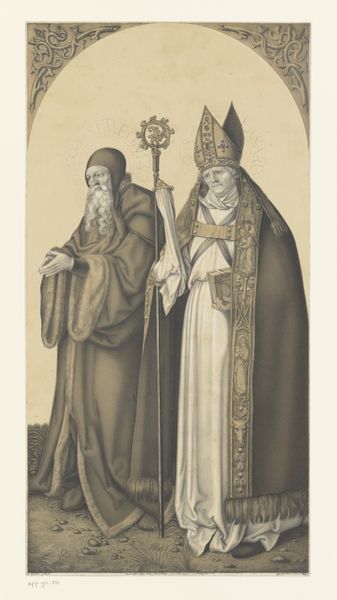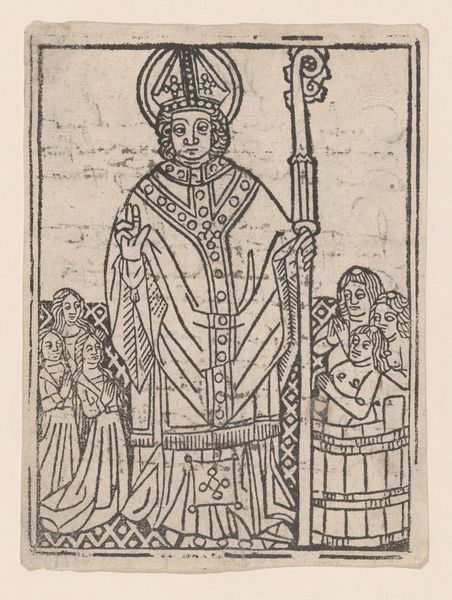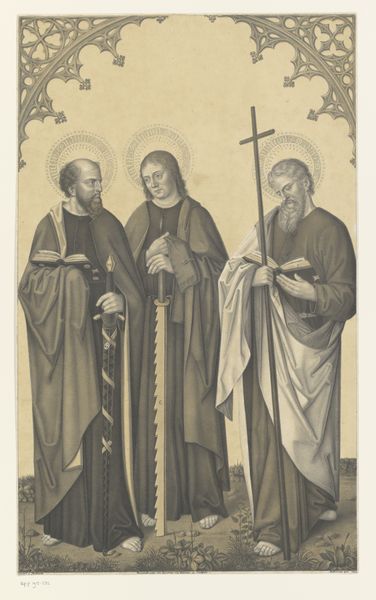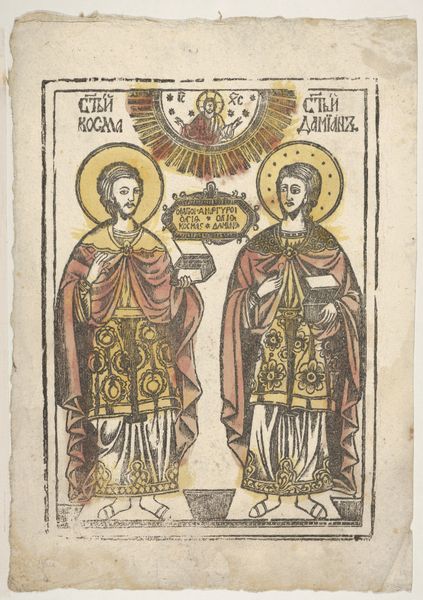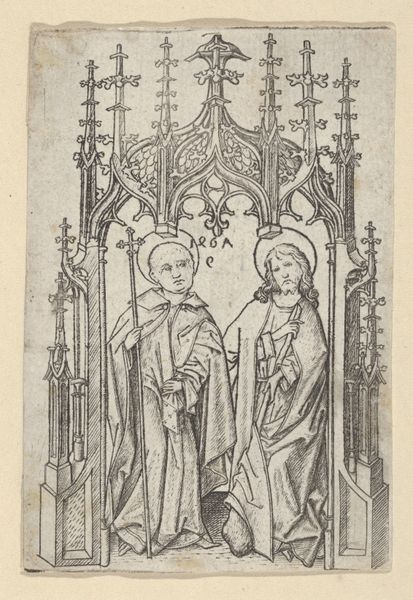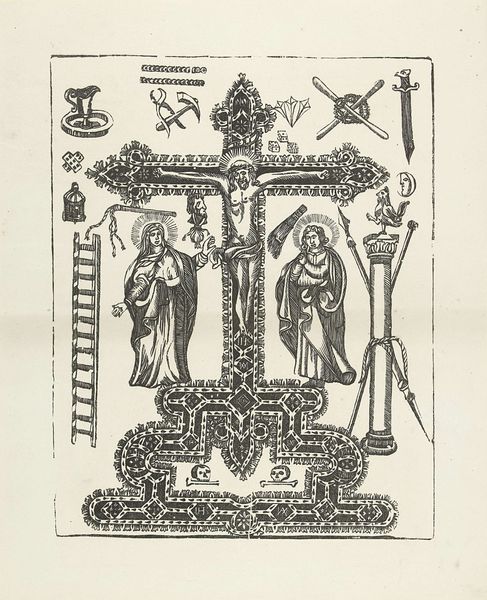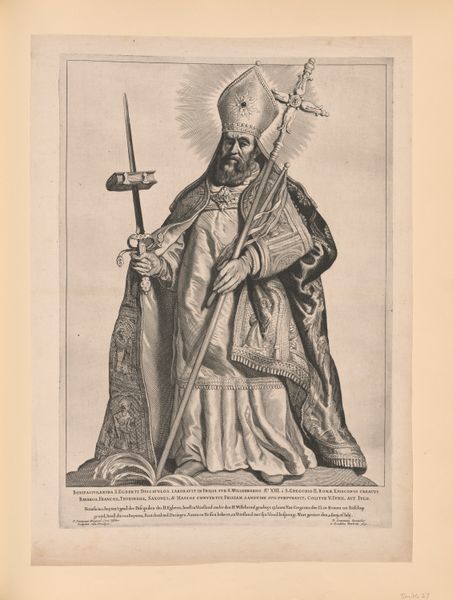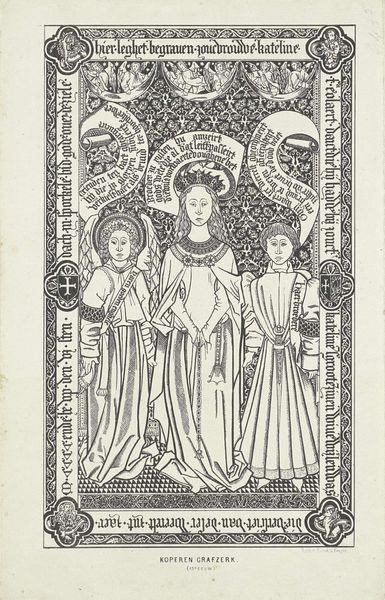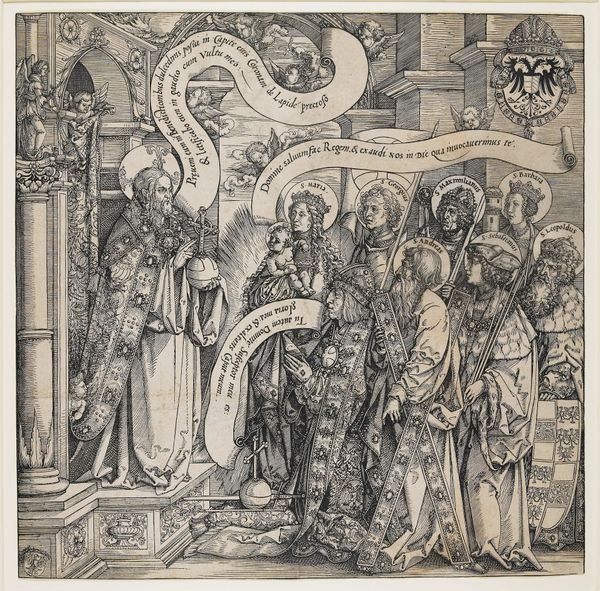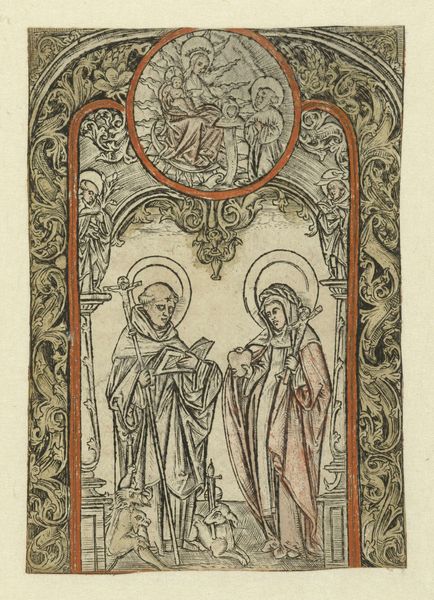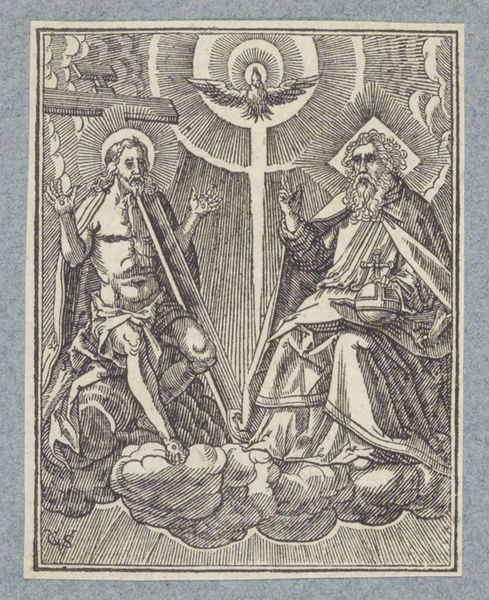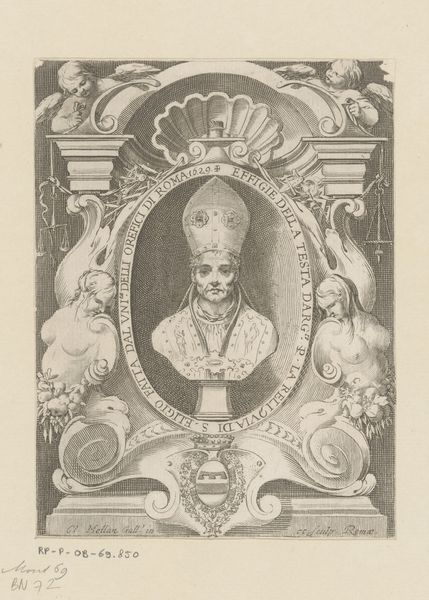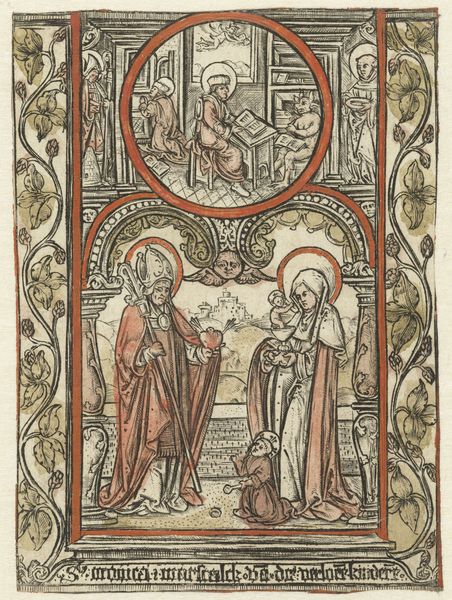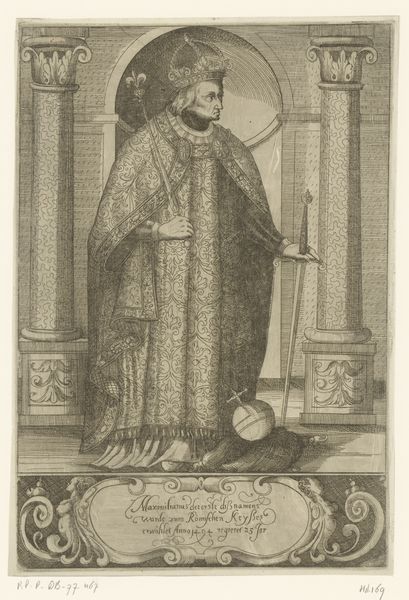
drawing, print, ink, engraving
#
drawing
#
byzantine-art
#
medieval
# print
#
old engraving style
#
figuration
#
ink
#
history-painting
#
engraving
Copyright: National Gallery of Art: CC0 1.0
This print of Saint Constantine and Saint Elena was made by an anonymous artist, likely in the 19th century. It is rendered with an economy of means, using line etching to create an image that is both iconic and surprisingly detailed. Consider the labor involved in this kind of printmaking. First, a metal plate would have been prepared, covered with an acid-resistant ground. Then, using a sharp needle, the artist would have scratched away the ground to reveal the metal beneath. The plate would then be submerged in acid, which bites into the exposed lines. This process could be repeated to achieve varying depths and thicknesses of line. Finally, the plate would be inked and pressed onto paper, transferring the image. The resulting print, with its delicate lines and subtle tonal variations, reflects a tension between mechanization and the artist's hand. Although printing allows for the reproduction of images, each impression retains the mark of the maker. This piece prompts us to consider the social and economic context of image production, and how these images served as accessible forms of religious devotion.
Comments
No comments
Be the first to comment and join the conversation on the ultimate creative platform.
